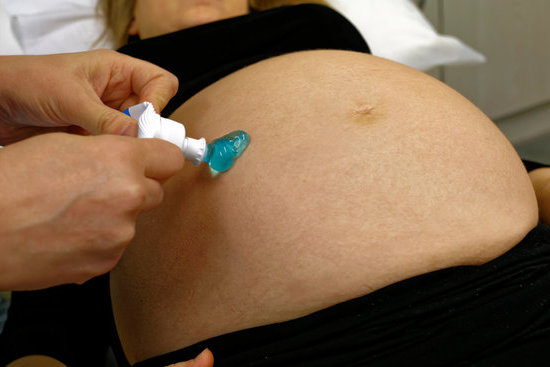Are you experiencing early signs of pregnancy? Recognizing these symptoms is crucial if you suspect that you might be expecting. From missed periods to changes in breast, fatigue and mood swings, there are various indicators to look out for. Understanding the importance of recognizing these signs can help you take the necessary steps towards confirming a pregnancy and seeking proper medical care.
When it comes to early signs of pregnancy, it’s essential to pay attention to your body and be aware of any unusual changes. Missing a period is often the first tell-tale sign. However, there are other symptoms like nausea, breast changes, fatigue, frequent urination, food aversions/cravings, and mood swings that can signal a possible pregnancy. Being well-informed about these symptoms can help in making informed decisions about your health and wellbeing.
Many women may experience these early signs before a missed period or even find them confusing for premenstrual symptoms. Knowing what to expect when you might be pregnant is crucial for taking any necessary actions and for understanding how vital it is to seek professional medical advice and testing for confirmation of pregnancy.
It’s important not to overlook these signs as they could indicate the beginning of an exciting new chapter in life or require medical attention if there’s uncertainty.
Missed Period
A missed period is often one of the earliest and most obvious signs that a woman might be pregnant. When a woman misses her period, it is natural to suspect pregnancy as the cause. However, it is important to understand the timing and regularity of your menstrual cycle in order to accurately recognize this sign of pregnancy.
For many women, a menstrual cycle lasts an average of 28 days, although this can vary from person to person. Therefore, if you have a regular menstrual cycle and suddenly miss a period, it could indicate that you are pregnant. It’s important to note that there can be other reasons for a missed period, such as stress or hormonal changes, so it’s important not to jump to conclusions based solely on this symptom.
To help determine if a missed period may be due to pregnancy, keeping track of your menstrual cycles using a calendar or app can be helpful. By understanding your usual cycle length and identifying when you may have ovulated, you can better gauge if your missed period aligns with potential early signs of pregnancy.
- Keep track of your menstrual cycles on a calendar or app
- Understand your usual cycle length and ovulation timing
- Look for any deviations or irregularities in your menstrual cycle
It’s also worth noting that while a missed period is a common sign of pregnancy, not all women experience this symptom. Therefore, paying attention to other early signs and symptoms can provide further insight into whether or not you may be pregnant.
Nausea and Vomiting
In addition to feeling nauseous, other symptoms related to this early sign of pregnancy include increased saliva production, sensitivity to certain smells or odors, and aversion to certain foods. Some women may find relief from their nausea by eating small, frequent meals, staying hydrated, avoiding strong odors, getting plenty of rest, and taking prenatal vitamins containing vitamin B6.
It’s important for pregnant individuals experiencing severe or persistent nausea and vomiting to consult with their healthcare provider. This is especially true if there are concerns about dehydration due to inability to keep down food or liquids. It’s also crucial for pregnant individuals to be aware that while morning sickness is common and usually harmless, excessive vomiting during pregnancy can lead to a condition called hyperemesis gravidarum which requires medical attention.
Understanding the signs and symptoms associated with nausea and vomiting in early pregnancy is essential for those who suspect they might be pregnant. By being knowledgeable about these signs, individuals can take proactive steps towards managing their symptoms and seeking medical advice if necessary.
Changes in Breast
During the early stages of pregnancy, many women experience changes in their breasts. These changes can serve as some of the first physical signs that a woman may be pregnant. While not all women will notice these changes, they are a common occurrence for many expectant mothers. Here are some early signs of pregnancy to look out for when it comes to breast changes:
- Tender, swollen, or sensitive breasts: Many women experience tenderness or swelling in their breasts as one of the earliest signs of pregnancy. The hormonal changes in the body can cause the breasts to become more sensitive and tender to the touch.
- Darkening of the areolas and visible veins: Another noticeable change in the breasts during early pregnancy is the darkening of the areolas (the area around the nipples) and the appearance of more prominent veins on the breast’s surface.
These changes in breast tissue typically occur due to hormonal fluctuations as the body prepares for pregnancy and eventual breastfeeding. It is important to note that not all women will experience these particular symptoms, but they are common indicators of early pregnancy.
For those who suspect they might be pregnant, paying attention to these signs can provide valuable insight before taking a pregnancy test. However, it is essential to remember that every woman’s body is different, and symptoms may vary widely from person to person. If you notice any significant changes in your breast health or any other potential signs of pregnancy mentioned earlier, it is crucial to seek professional medical advice for confirmation and guidance on your next steps.
Fatigue
Feeling unusually tired and exhausted is one of the early signs of pregnancy that women may experience. This fatigue can be overwhelming and debilitating, often causing women to need more sleep than usual or to struggle to stay awake during the day. The body is working hard to support the developing fetus, which can lead to a significant decrease in energy levels. Understanding and recognizing this symptom is important for those who suspect they might be pregnant.
Napping More Often or Struggling to Stay Awake During the Day
Many women find themselves needing to take naps more frequently throughout the day when they are in the early stages of pregnancy. This is due to the increased levels of progesterone, which has a sedative effect on the body, making it difficult for women to stay awake during normal waking hours.
The Impact of Fatigue on Daily Life
Fatigue can have a significant impact on a woman’s ability to perform her usual daily activities. It may affect her work, household chores, and social life. The exhaustion associated with early pregnancy can also contribute to mood swings and irritability, further disrupting normal routines and relationships.
Recognizing fatigue as one of the early signs of pregnancy is crucial for seeking appropriate prenatal care and making necessary lifestyle adjustments. It’s essential for pregnant women experiencing extreme fatigue to get plenty of rest, eat well-balanced meals, and avoid caffeine or alcohol. Seeking medical advice from a healthcare professional will provide pregnant individuals with confirmation and support regarding their symptoms.
Frequent Urination
Understanding the Hormonal and Physical Changes
One of the early signs of pregnancy that many women experience is frequent urination. This symptom occurs as a result of hormonal changes in the body, particularly an increase in the hormone human chorionic gonadotropin (hCG).
This hormone is produced by the placenta shortly after a fertilized egg attaches to the uterine lining, and it plays a crucial role in sustaining the pregnancy. Additionally, as the uterus grows in size, it puts pressure on the bladder, causing the need to use the bathroom more often than usual.
Tips for Managing Frequent Urination
Dealing with frequent urination during early pregnancy can be challenging, but there are some tips for managing this symptom. It is important to stay hydrated, but try to avoid drinking large amounts of fluids at one time. Instead, sip water throughout the day to stay hydrated without overloading your bladder. Also, try to empty your bladder completely when you urinate to reduce the frequency of bathroom trips.
When to Seek Medical Advice
While frequent urination can be a normal early sign of pregnancy, it can also be a symptom of other conditions such as urinary tract infections or diabetes. Therefore, if you are experiencing this symptom and suspect you might be pregnant, it is important to seek medical advice.
A healthcare provider can conduct tests to confirm pregnancy and rule out any other underlying issues that may be causing frequent urination. Additionally, they can provide guidance on managing this symptom and offer support throughout your pregnancy journey.
Food Aversions and Cravings
Experiencing food aversions and cravings can be one of the early signs of pregnancy that many women encounter. A sudden dislike for certain smells and tastes, as well as an intense craving for specific foods, can often be a strong indicator that a woman may be pregnant.
These symptoms are usually attributed to changes in hormone levels, particularly the hormones progesterone and human chorionic gonadotropin (hCG). While not every woman will experience these particular symptoms, they are commonly reported among those who do.
When it comes to food aversions, some women find themselves disliking foods that they previously enjoyed, while others develop stronger reactions to smells or tastes that didn’t bother them before. For example, the aroma of coffee or the smell of certain cooking odors might become unbearable.
On the flip side, pregnant women can also experience intense cravings for specific types of food such as pickles with chocolate or other unusual combinations. These cravings may come on suddenly and feel urgent until satisfied.
Research shows that about 85% of pregnant women experience some form of food aversion during the first trimester. This could be related to an evolutionary adaptation; avoiding certain foods during pregnancy may protect both mother and baby from potential toxins or harmful bacteria more common in those food items. This also supports the idea that these early signs could have evolved to protect both mother and unborn child.
| Early Signs of Pregnancy | % of Pregnant Women Experiencing Symptom |
|---|---|
| Food Aversions | 85% |
| Food Cravings | 80% |
Mood Swings
During the early stages of pregnancy, mood swings are a common symptom that many women experience. These mood swings can vary from feeling more emotional and sensitive to being easily irritated or agitated. Hormonal changes play a significant role in these mood fluctuations, as the body adjusts to the presence of pregnancy hormones like estrogen and progesterone. It’s also important to note that every woman’s experience with mood swings during pregnancy can be different.
In addition to hormonal changes, the stress and anticipation of becoming a parent can also contribute to mood swings. The combination of physical symptoms, lifestyle adjustments, and emotional changes can lead to heightened emotions and fluctuating moods. Partners and loved ones play an essential role in providing support and understanding during this time.
It’s crucial for expectant mothers to recognize these mood swings as part of the pregnancy process. Seeking emotional support from family, friends, or healthcare providers can help alleviate some of the stress associated with mood swings during early pregnancy.
| Mood Symptoms | How to Cope |
|---|---|
| Emotional sensitivity | Engage in relaxation techniques such as meditation or deep breathing exercises |
| Irritability | Communicate openly with your partner about your feelings and needs |
| Anxiety | Seek professional counseling if feelings of anxiety become overwhelming |
Conclusion
In conclusion, recognizing the early signs of pregnancy is crucial for anyone who suspects they might be expecting. Understanding and being aware of these symptoms can help individuals make informed decisions about their health and well-being. Whether it’s a missed period, nausea and vomiting, changes in breast tenderness, fatigue, frequent urination, food aversions and cravings, or mood swings, paying attention to these signs can prompt individuals to seek professional medical advice and testing for confirmation of pregnancy.
It is important not to dismiss or ignore any potential signs of pregnancy. Even if some symptoms may seem mild or easily attributable to another cause, it is always better to err on the side of caution when it comes to matters as important as this one. Seeking medical attention will provide clarity and peace of mind, whether the result is positive or negative.
Ultimately, the most responsible course of action when suspecting a possible pregnancy is seeking professional medical advice. A healthcare provider can offer guidance on next steps and provide options for further testing if necessary. The early signs of pregnancy are subtle yet vital indicators that should prompt anyone with suspicions to seek confirmation through proper medical channels.
Frequently Asked Questions
How Soon Can Symptoms of Pregnancy Start?
Symptoms of pregnancy can start as early as one to two weeks after conception. These can include fatigue, breast tenderness, nausea, and a heightened sense of smell. However, some women may not experience any symptoms until later on in the pregnancy.
What Symptoms Do You Have at 1 Week Pregnant?
At 1 week pregnant, a woman may not experience any noticeable symptoms as implantation has just occurred. Some women may notice mild cramping or spotting due to the implantation process. However, it is highly unlikely to experience any typical pregnancy symptoms at this early stage.
How Can I Tell Early if I’m Pregnant?
Early signs of pregnancy can include missed periods, tender or swollen breasts, nausea or vomiting (also known as morning sickness), increased urination and fatigue. Other indicators may include food cravings or aversions, mood swings, dizziness, and headaches.
Some women also experience light spotting or cramping which could be mistaken for an early period but is actually implantation bleeding. Taking a home pregnancy test is also an effective way to tell if you are pregnant early on.

Welcome to my fertility blog. This is a space where I will be sharing my experiences as I navigate through the world of fertility treatments, as well as provide information and resources about fertility and pregnancy.





